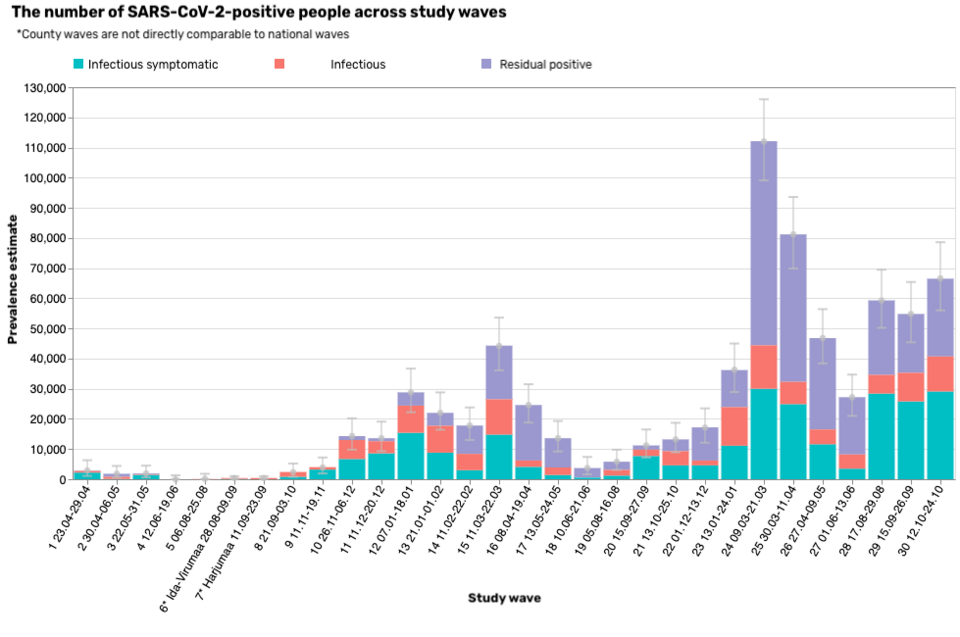-
Faculty of Arts and HumanitiesDean's Office, Faculty of Arts and HumanitiesJakobi 2, r 116-121 51005 Tartu linn, Tartu linn, Tartumaa EST0Institute of History and ArchaeologyJakobi 2 51005 Tartu linn, Tartu linn, Tartumaa EST0Institute of Estonian and General LinguisticsJakobi 2, IV korrus 51005 Tartu linn, Tartu linn, Tartumaa EST0Institute of Philosophy and SemioticsJakobi 2, III korrus, ruumid 302-337 51005 Tartu linn, Tartu linn, Tartumaa EST0Institute of Cultural ResearchÜlikooli 16 51003 Tartu linn, Tartu linn, Tartumaa EST0Institute of Foreign Languages and CulturesLossi 3 51003 Tartu linn, Tartu linn, Tartumaa EST0School of Theology and Religious StudiesÜlikooli 18 50090 Tartu linn, Tartu linn, Tartumaa EST0Viljandi Culture AcademyPosti 1 71004 Viljandi linn, Viljandimaa EST0Professors emeritus, Faculty of Arts and Humanities0Associate Professors emeritus, Faculty of Arts and Humanities0Faculty of Social SciencesDean's Office, Faculty of Social SciencesLossi 36 51003 Tartu linn, Tartu linn, Tartumaa EST0Institute of EducationJakobi 5 51005 Tartu linn, Tartu linn, Tartumaa EST0Johan Skytte Institute of Political StudiesLossi 36, ruum 301 51003 Tartu linn, Tartu linn, Tartumaa EST0School of Economics and Business AdministrationNarva mnt 18 51009 Tartu linn, Tartu linn, Tartumaa EST0Institute of PsychologyNäituse 2 50409 Tartu linn, Tartu linn, Tartumaa EST0School of LawNäituse 20 - 324 50409 Tartu linn, Tartu linn, Tartumaa EST0Institute of Social StudiesLossi 36 51003 Tartu linn, Tartu linn, Tartumaa EST0Narva CollegeRaekoja plats 2 20307 Narva linn, Ida-Virumaa EST0Pärnu CollegeRingi 35 80012 Pärnu linn, Pärnu linn, Pärnumaa EST0Professors emeritus, Faculty of Social Sciences0associate Professors emeritus, Faculty of Social Sciences0Faculty of MedicineDean's Office, Faculty of MedicineRavila 19 50411 Tartu linn, Tartu linn, Tartumaa ESTInstitute of Biomedicine and Translational MedicineBiomeedikum, Ravila 19 50411 Tartu linn, Tartu linn, Tartumaa ESTInstitute of PharmacyNooruse 1 50411 Tartu linn, Tartu linn, Tartumaa ESTInstitute of DentistryL. Puusepa 1a 50406 Tartu linn, Tartu linn, Tartumaa ESTInstitute of Clinical MedicineL. Puusepa 8 50406 Tartu linn, Tartu linn, Tartumaa ESTInstitute of Family Medicine and Public HealthRavila 19 50411 Tartu linn, Tartu linn, Tartumaa ESTInstitute of Sport Sciences and PhysiotherapyUjula 4 51008 Tartu linn, Tartu linn, Tartumaa ESTprofessors emeritus, Faculty of Medicine0associate Professors emeritus, Faculty of Medicine0Faculty of Science and TechnologyDean's Office, Faculty of Science and TechnologyVanemuise 46 - 208 51003 Tartu linn, Tartu linn, Tartumaa ESTInstitute of Computer ScienceNarva mnt 18 51009 Tartu linn, Tartu linn, Tartumaa ESTInstitute of GenomicsRiia 23b/2 51010 Tartu linn, Tartu linn, Tartumaa ESTEstonian Marine Institute0Institute of PhysicsInstitute of ChemistryRavila 14a 50411 Tartu linn, Tartu linn, Tartumaa ESTInstitute of Mathematics and StatisticsNarva mnt 18 51009 Tartu linn, Tartu linn, Tartumaa EST0Institute of Molecular and Cell BiologyRiia 23, 23b - 134 51010 Tartu linn, Tartu linn, Tartumaa ESTTartu ObservatoryObservatooriumi 1 61602 Tõravere alevik, Nõo vald, Tartumaa EST0Institute of TechnologyNooruse 1 50411 Tartu linn, Tartu linn, Tartumaa ESTInstitute of Ecology and Earth SciencesJ. Liivi tn 2 50409 Tartu linn, Tartu linn, Tartumaa ESTprofessors emeritus, Faculty of Science and Technology0associate Professors emeritus, Faculty of Science and Technology0Area of Academic SecretaryHuman Resources OfficeUppsala 6, Lossi 36 51003 Tartu linn, Tartu linn, Tartumaa EST0Area of Head of FinanceFinance Office0Area of Director of AdministrationInformation Technology Office0Administrative OfficeÜlikooli 17 (III korrus) 51005 Tartu linn, Tartu linn, Tartumaa EST0Estates Office0Marketing and Communication OfficeÜlikooli 18, ruumid 102, 104, 209, 210 50090 Tartu linn, Tartu linn, Tartumaa EST0Area of Vice Rector for Academic AffairsOffice of Academic AffairsUniversity of Tartu Youth AcademyUppsala 10 51003 Tartu linn, Tartu linn, Tartumaa ESTStudent Union OfficeÜlikooli 18b 51005 Tartu linn, Tartu linn, Tartumaa EST0Centre for Learning and TeachingArea of Vice Rector for ResearchUniversity of Tartu LibraryW. Struve 1 50091 Tartu linn, Tartu linn, Tartumaa ESTGrant OfficeArea of Vice Rector for DevelopmentCentre for Entrepreneurship and InnovationNarva mnt 18 51009 Tartu linn, Tartu linn, Tartumaa EST0University of Tartu Natural History Museum and Botanical GardenVanemuise 46 51003 Tartu linn, Tartu linn, Tartumaa EST0International Cooperation and Protocol Office0University of Tartu MuseumLossi 25 51003 Tartu linn, Tartu linn, Tartumaa EST0Area of RectorRector's Strategy OfficeInternal Audit Office
Coronavirus prevalence remains high, but people are doing less to avoid infection
This wave of the prevalence study led by the University of Tartu shows that the virus is still rapidly spreading among adults. The infection is fuelled by people’s disregard for precautions, which is now higher than ever before during the study.

During the study wave from 12 to 24 October, 2,104 people were tested for coronavirus. 6.2% of them tested positive, and 3.8% were still infectious. This allows estimating that one in 26 adults is currently infectious. The figure has somewhat increased compared to last month. Most of the infected (70%) have noticeable but generally mild symptoms.
An analysis of antibodies against the coronavirus revealed that 91% of adults had the protective antibodies. The prevalence of antibodies in over 65-year-olds is as high as 95%. Almost all vaccinated people have antibodies, while among those who are unvaccinated but have recovered from the disease, 80% have antibodies. People who have received two booster vaccine doses have a significantly higher amount of antibodies than others.
The willingness to get a booster dose is the highest among people over 65. More than half of them are planning to get it. By contrast, only a fifth of people aged 18–39 would like to take the booster.
Risk behaviour is the highest in the history of the study
Estonia is currently at the medium risk level based on the number of people needing hospital care. Over the last month, more than 200 people required hospitalisation. The behavioural survey carried out with the study shows that people’s risk perceptions have fallen to the lowest level in the last two years. A third of adults do nothing to avoid getting infected. Careless behaviour is especially noticeable among people aged 40–64, but also among young adults.
Although the proportion of those who had contact with an infected person increased last month, the use of precautions to stop the virus has further decreased. During this study wave, one in eight adults was in close contact with an infected person. However, most of them (4/5) do nothing to prevent the further spread of the virus. This pattern is particularly common among unvaccinated people. According to the head of the prevalence study, University of Tartu Professor of Family Medicine Ruth Kalda, the reduced risk perception towards Covid-19 is quite expectable, as the predominant virus strain is milder. However, the Omicron variant of the coronavirus may also cause severe illness for at-risk groups. Therefore, we should make it a rule to take a rapid Covid test after contact with an infected person or with symptoms of a cold and stay home if the test is positive. This way, we can prevent the further spread of the virus,” Kalda said.
The coronavirus prevalence study is conducted by a broad-based research team of the University of Tartu in cooperation with Synlab Estonia, Medicum and Kantar Emor.
The prevalence study is the only tool in Estonia to monitor the prevalence of the coronavirus in the adult population. The findings will help decision-makers make evidence-based decisions on using healthcare resources for the health and well-being of Estonian citizens. The study is commissioned by the Government of the Republic and funded by the European Regional Development Fund from the EU measure to respond to the Covid-19 pandemic.
For more information about the study, see the University of Tartu web page.
Doctoral defence: Marite Punapart "Effects of Valproate and Liraglutide in Rodent Models of Wolfram Syndrome: Emphasis on Transcriptomic Changes in the Renin-Angiotensin-Aldosterone System"
Doctoral defence: Katrin Tomson-Johanson "Impulsivity, serum lipids and serotonin-related functional gene variants"

